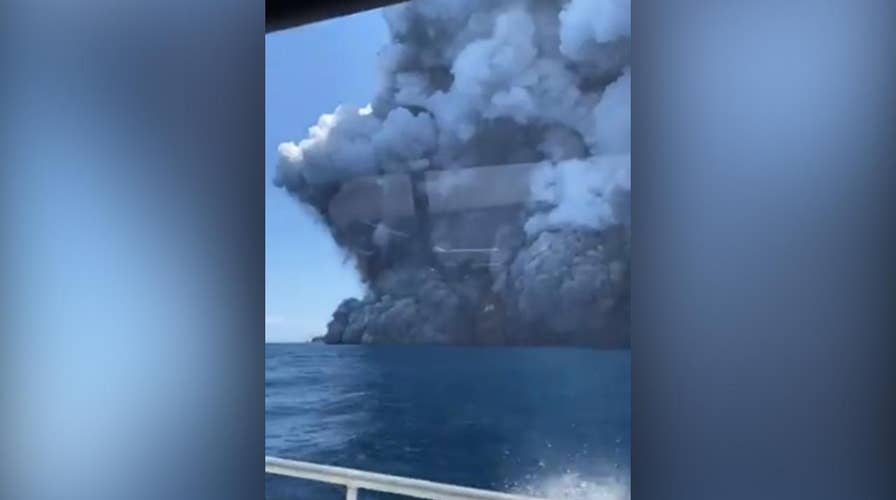Five dead, several missing after volcano erupts in New Zealand
Police are not sure how many people are still on White Island after the deadly eruption.
Authorities scrambling to search for survivors after a volcanic island in New Zealand erupted said Monday that aerial searches have revealed "no signs of life" since the eruption.
The New Zealand police said in a press release early Tuesday morning local time that at least five people died and eight are missing when the eruption took place Monday afternoon on White Island. White Island sits about 30 miles offshore from mainland New Zealand and experts say it's the country's most active cone volcano, with about 70 percent of the volcano lying under the sea.
"Police believe that anyone who could have been taken from the island alive was rescued at the time of the evacuation," police stated. "Based on the information we have, we do not believe there are any survivors on the island."
NEW ZEALAND VOLCANO ERUPTS, AT LEAST 5 DEAD, RESCUERS CAN'T ACCESS ISLAND
Police Deputy Commissioner John Tims said at a news conference there were 47 people on the island when it erupted and that eight remain missing.
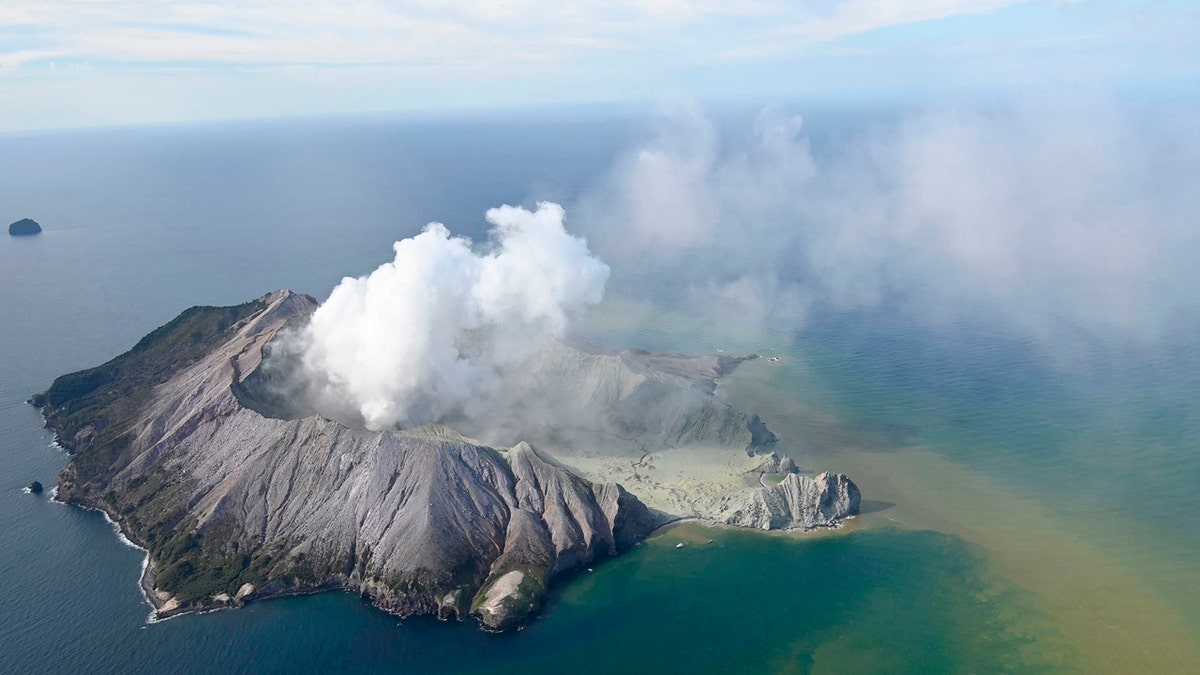
This aerial photo shows White Island after its volcanic eruption in New Zealand Monday, Dec. 9, 2019. (George Novak/New Zealand Herald via AP)
New Zealand Prime Minister Jacinda Ardern told reporters that 31 people were in seven hospitals, including some in critical condition, while three had been discharged overnight. Arden said the victims include people from New Zealand, Australia, the U.K., the U.S., China and Malaysia.
"We share in your unfathomable grief in this moment and time," Ardern said. "For now, our duty is to return loved ones."
Victims are being treated at hospital burn units throughout the country, according to officials, who added that no additional victims have died since the initial blast on Monday, the New Zealand Herald reported.
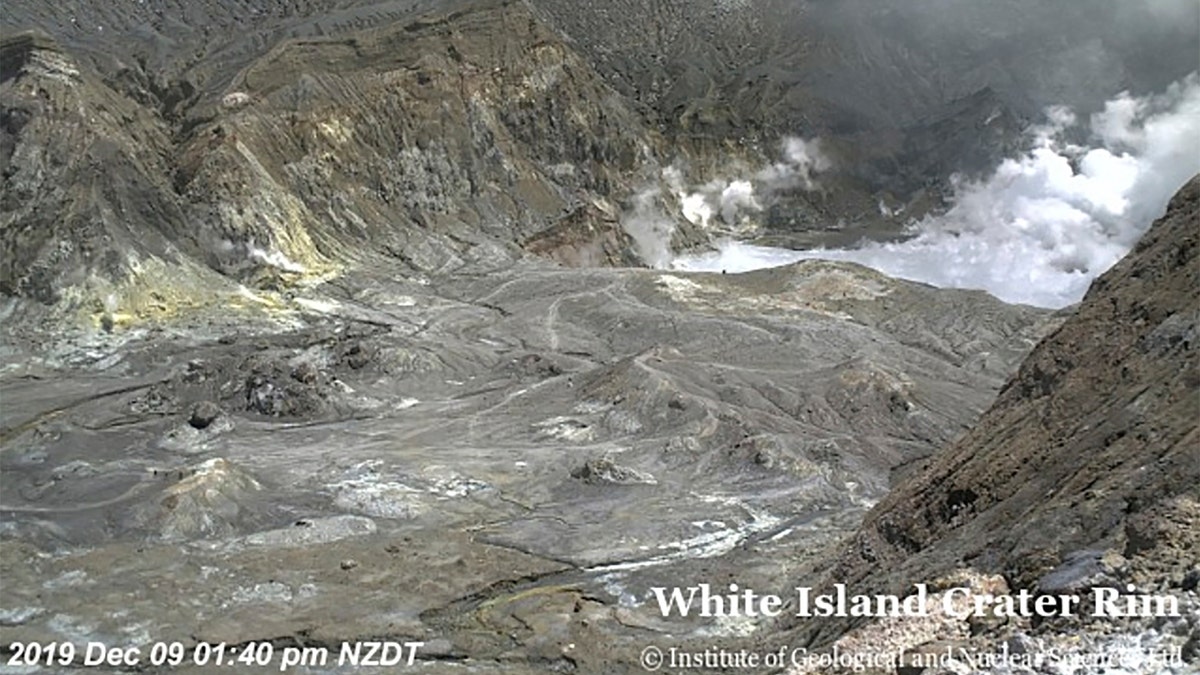
In this image released by GeoNet, tourists can be seen near the volcano's crater Monday, Dec. 9, 2019, on White Island, New Zealand. (GNS Science via AP)
"The focus has to be on those who are...critically injured and, of course, what is now a recovery [mission]," Ardern said, adding, "It is a very unpredictable volcano."
Police said that a pilot who was called out to the scene spent about 45 minutes about the island and reported there were no signs of life. Rescuers have reported that the volcano has generated "significant" ash that is impeding efforts to return to the island.
"The experts that we've spoken to have said it is unsafe for us to go on that island. The island is unstable, the physical environment is unsafe for us to return to the island," Tims told reporters. "It is important that we consider the health and safety of those that will return to the island."
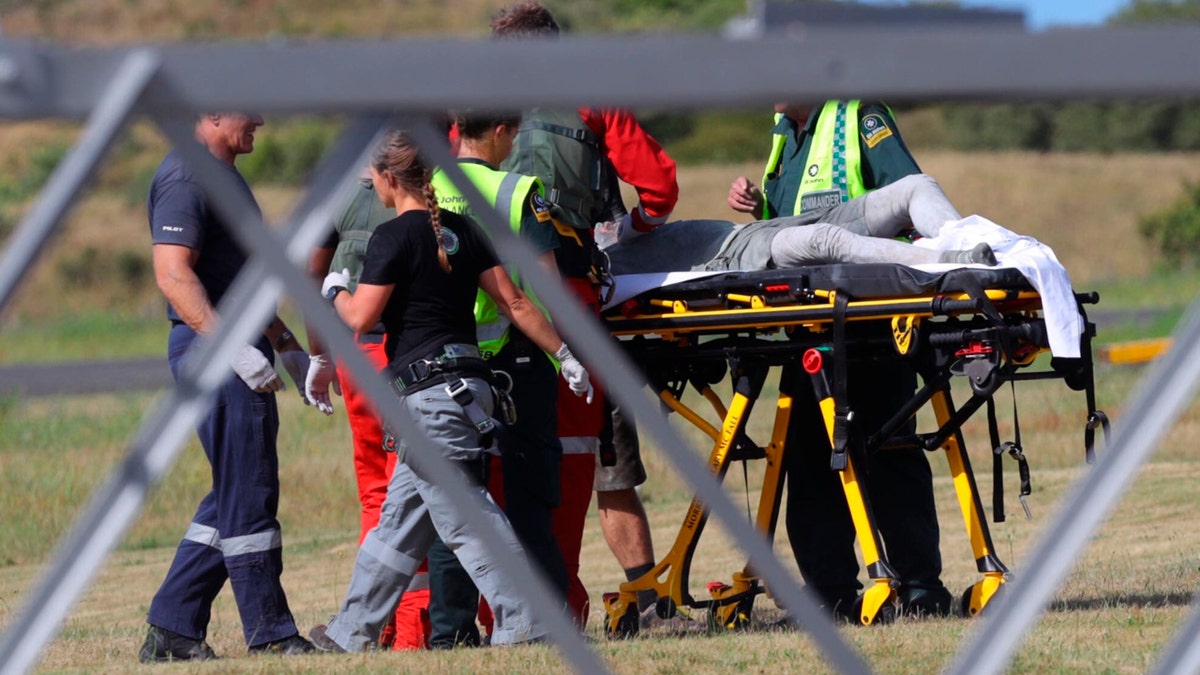
Emergency services attend to an injured person arriving at the Whakatane Airfield after the volcanic eruption Monday, Dec. 9, 2019, on White Island, New Zealand. (Alan Gibson/New Zealand Herald via AP)
Police said in a news release their response has shifted to a recovery operation, and that a ship from the New Zealand Defense Forces will approach the perimeter of the island at first light on Tuesday to deploy drones and observational equipment to further assess the environment.
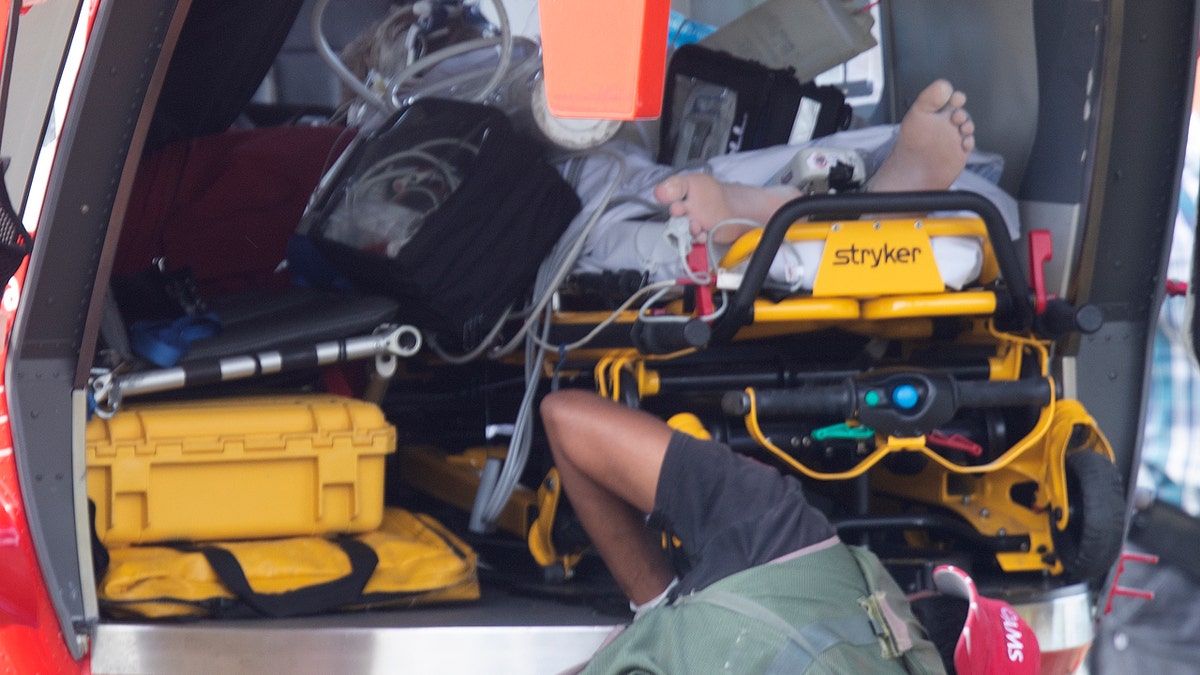
Emergency services attend to an injured person arriving at the Whakatane Airfield after the volcanic eruption Monday, Dec. 9, 2019, on White Island, New Zealand. (Alan Gibson/New Zealand Herald via AP)
A total of 37 passengers and one crew member from the Royal Caribbean International cruise ship Ovation of the Seas were affected by the blast, according to police.
“A number of our guests were touring the island today," the company said. “We will offer all possible assistance to our guests and local authorities. Please keep all those affected in your prayers.”
The cruise ship, which had left Sydney last week, was scheduled to sail to the capital Wellington on Monday night but the company said it would instead remain in the Tauranga port overnight until it learned more about the situation.
SMALL VOLCANO DISCOVERED IN THE PACIFIC OCEAN
“My god,” wrote Michael Schade on Twitter as he posted a video of the eruption. “My family and I had gotten off it 20 minutes before, were waiting at our boat about to leave when we saw it. Boat ride home tending to people our boat rescued was indescribable.”
His video showed a wall of ash and steam around the island and a helicopter badly damaged and covered in ash.
Scott said one woman was badly injured but seemed “strong” by the end.
Ardern, who traveled to the region late Monday, said the incident was “very significant."
“All our thoughts are with those affected,” she said.
Ardern said the focus remained on the search-and-rescue mission for now and questions about whether tourists should be visiting would be addressed later. But many people are questioning why tourists were still able to visit the island after scientists recently noted an uptick in volcanic activity.
The GeoNet agency, which monitors volcanoes and earthquakes in New Zealand, had raised the alert level on White Island from 1 to 2 on Nov. 18, noting an increase in the amount of sulfur dioxide gas, which originates from magma deep in the volcano. It also said at the time that over the previous weeks, the volcanic tremor had increased from weak to moderate strength.
Brad Scott, a volcanologist with research group GNS Science, said the alert level was often raised and then later dropped again without any eruption. He said there hadn't been any major incidents with tourists visiting the island in the past, although there had been some close calls
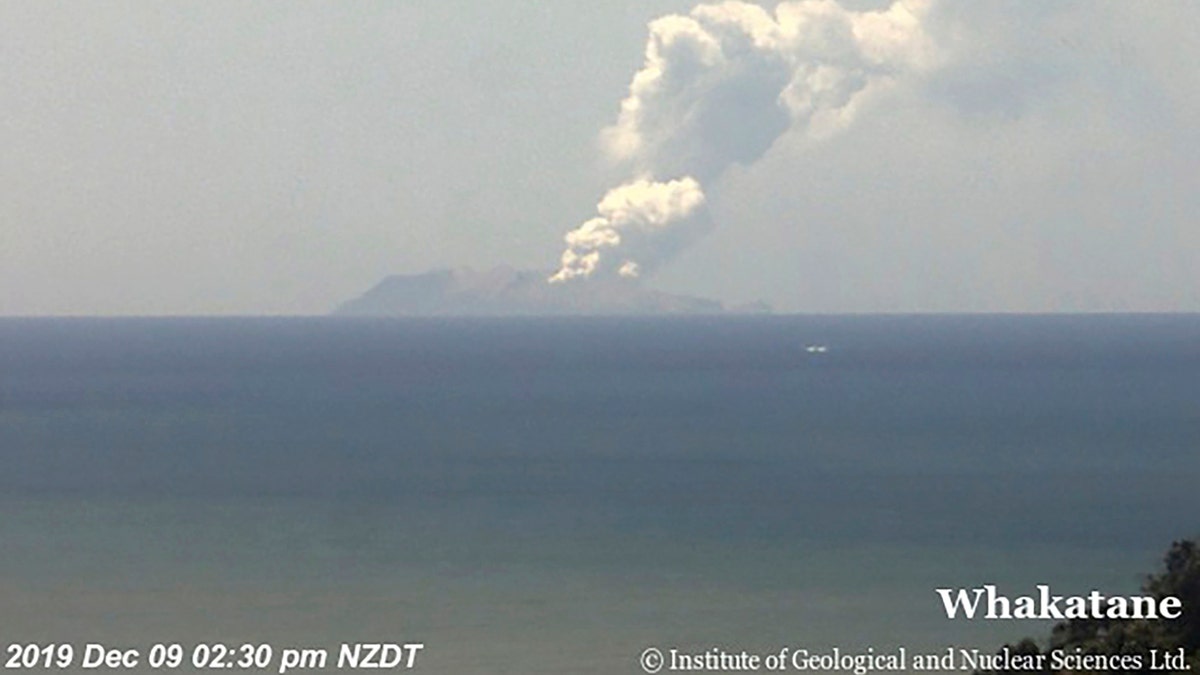
This image released by GNS Science, shows plumes of smoke from a volcanic eruption on White Island, seen from Whakatane, New Zealand Monday, Dec. 9, 2019. (GNS Science via AP)
GeoNet at first raised its alert level to 4, on a scale where 5 represents a major eruption. It later dropped the alert level back down to 3. Scott said that was because the eruption wasn't sustained beyond the initial blast.
CLICK HERE FOR THE FOX NEWS APP
“In the scheme of things, for volcanic eruptions, it is not large," Ken Gledhill from GeoNet told the Associated Press. “But if you were close to that, it is not good.”
The Associated Press contributed to this report.
